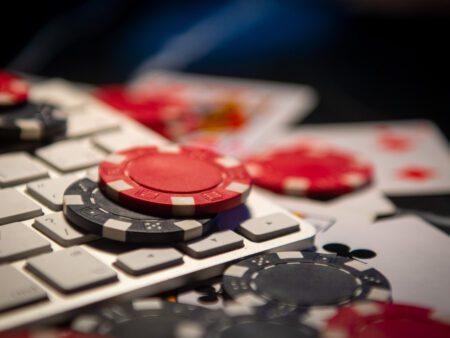Discover how to master reading poker faces in the digital age of online poker, where physical tells give way to digital cues.
Learn the Art of Reading Poker Faces Through a Screen
Ever sat across a poker table, trying to decipher the twitch of an eyebrow or the subtle smirk that might reveal a player’s hand? Now, imagine doing that through a screen. The digital age has transformed poker, demanding new skills to read opponents you can’t physically see. But is it really possible to read poker faces through pixels and digital interfaces?
The transition from physical to online poker rooms hasn’t dulled the strategic depth of the game; if anything, it’s added a new layer. The essence of poker – psychology, strategy, and a dash of luck – remains unchanged. Yet, the cues have evolved. Instead of physical tells, online players learn to interpret betting patterns, reaction times, and even chat box banter.
For those looking to sharpen their online poker acumen, understanding these digital tells is paramount. The Texas Hold’em Poker strategies that thrived in the neon-lit corners of Vegas casinos now need adapting to the virtual felt of online tables. This evolution calls for a blend of traditional poker wisdom and digital-age savvy.
Diving deeper into the virtual world of poker, the art of ‘reading’ becomes more about analytics than intuition. The speed of a player’s response, for example, can be a goldmine of information. A quick bet might indicate a strong hand or an attempt to intimidate, while hesitation could hint at uncertainty or a bluff in progress. These subtleties can be as telling as a physical tell, but they require a keen eye and a mind attuned to patterns rather than gestures.
Moreover, the use of software tools that track and analyze opponents’ hand histories has introduced a new dimension to the game. While not a replacement for human intuition, these tools can provide a statistical overview of an opponent’s behavior, offering insights into their strategy and tendencies. It’s a blend of cold, hard data and psychological warfare, a game within a game.
Yet, amidst the numbers and analysis, there’s still room for the human element. The chat box, often overlooked, can be a window into an opponent’s mindset. Players who are overly chatty or suddenly silent can inadvertently reveal much about their confidence and hand strength. Just as in a physical poker room, the ability to read between the lines – or, in this case, between the typed words – remains a valuable skill.
Transitioning these insights into actionable strategies transforms good players into formidable ones. It’s not just about noticing a fast bet or a silent chat box; it’s about understanding what these signs mean in the context of the game and the specific opponent. This level of strategic thinking elevates the game from a mere gamble to a nuanced battle of wits and wills, fought not with cards, but with clicks and keystrokes.
But here’s the kicker: as players get savvier, so too do the strategies for deceiving them. Just as a player might fake a tell in a live game, savvy online players might manipulate their digital ‘tells’ – varying their response times or engaging in chat box psychology to mislead opponents. The digital poker face is, after all, a mask that can be adjusted at will.
So, what does this mean for the future of online poker? It suggests a game that is continually evolving, where the skills required stretch beyond traditional poker knowledge to include digital literacy and psychological acuity. Players who adapt to these changes, who learn to read the subtle signs and signals of online play, will find themselves at an advantage. The question then becomes, are you ready to look beyond the screen and read the game in its new form?
In the end, the art of reading poker faces through a screen is not just about interpreting digital tells; it’s about understanding the human behavior that drives those tells. It’s a reminder that, even in the virtual world, poker remains a deeply human game.










